Did you know that Mount Kosciuszko, Australia’s highest peak at 2,228 meters, is also one of the most accessible of the world’s “Seven Summits”? Unlike its towering counterparts like Everest or Kilimanjaro, this alpine treasure allows visitors of almost any fitness level to stand atop the Australian continent after just a few hours of hiking. This remarkable accessibility is just one of many reasons why Kosciuszko National Park has become a premier destination for nature lovers, adventure seekers, and families alike.
Overview of Kosciuszko National Park
Spanning over 6,900 square kilometers in New South Wales, Kosciuszko National Park is a vast alpine wilderness that transforms dramatically with the seasons. Home to Australia’s highest mountain and the headwaters of the iconic Snowy River, this UNESCO Biosphere Reserve protects unique ecosystems found nowhere else on the continent. From snow-covered peaks in winter to vibrant wildflower displays in summer, the park offers year-round adventures for every type of traveler.
Getting to Mount Kosciuszko National Park
The park is accessible from several major cities, with most visitors approaching from either Sydney (approximately 5 hours drive) or Melbourne (around 6 hours drive). Canberra offers the closest major airport, just 2.5 hours away by car.
By Car
The most convenient way to reach the park is by car. From Sydney, take the Hume Highway (M31) south, then follow the Snowy Mountains Highway (B72) through Cooma. From Melbourne, take the Hume Highway (M31) north to Albury, then follow the Alpine Way (B400) through Jindabyne. The Alpine Way and Kosciuszko Road are the main routes into the park, with the latter providing access to Perisher and Charlotte Pass.
Important: Park entry fees apply and must be paid before entering. A day pass costs $29 per vehicle during peak season (June-October) and $17 during off-peak. Annual passes are also available.

By Public Transport
While more limited, public transport options do exist. Coaches run from Sydney and Canberra to Jindabyne, the gateway town to the park. During winter, the Skitube alpine railway connects Bullocks Flat (on the Alpine Way) with the Perisher Valley and Blue Cow Mountain, offering a convenient alternative to driving in snowy conditions.
When to Visit Mount Kosciuszko National Park
Summer (December-February)
Summer brings warm days (15-25°C) perfect for hiking, mountain biking, and wildflower viewing. This is the ideal time to attempt the summit walk, with alpine meadows transformed into carpets of colorful wildflowers. The snow has typically melted from all but the highest areas, opening up the full network of walking tracks.
Autumn (March-May)
Autumn offers crisp, clear days with fewer crowds. Temperatures begin to drop (5-15°C), and the alpine landscapes take on golden and russet hues. This is an excellent time for photography and peaceful hiking before the winter snow arrives.
Winter (June-August)
Winter transforms the park into Australia’s premier snow sports destination. Temperatures range from -5 to 5°C, with regular snowfalls creating ideal conditions for skiing, snowboarding, and snowshoeing. The resorts of Thredbo, Perisher, and Charlotte Pass come alive with winter activities.
Spring (September-November)
Spring sees the snow begin to melt, revealing the first wildflowers. Weather can be unpredictable, with temperatures ranging from 0-15°C. Lower trails become accessible for hiking, while higher areas may still offer late-season skiing opportunities.

Top Things to Do in Mount Kosciuszko National Park
1. Hike to the Summit of Mount Kosciuszko
Standing atop Australia’s highest peak is a must-do experience. Two main routes lead to the summit:
- Thredbo Route (13km return): Begin by taking the Kosciuszko Express Chairlift from Thredbo Village to Eagles Nest. From there, follow the raised metal walkway and well-marked trail to the summit. This route takes approximately 4-5 hours return and is suitable for most fitness levels.
- Charlotte Pass Route (18.6km return): Starting from Charlotte Pass, this longer but more scenic route follows the old Summit Road past Seaman’s Hut and Rawson Pass before climbing to the summit. Allow 6-7 hours for this return journey.
“The view from the top of Australia is absolutely worth every step. On a clear day, you can see for hundreds of kilometers across the Australian Alps.”

Book Guided Hiking Tours
2. Explore Thredbo Alpine Village

Thredbo Village offers year-round activities and serves as an excellent base for exploring the park. In winter, it’s a premier ski resort, while summer brings mountain biking, hiking, and a vibrant events calendar.
- Kosciuszko Express Chairlift: Operating year-round, this scenic ride offers spectacular views and access to hiking trails.
- Mountain Biking: Thredbo boasts Australia’s only alpine mountain bike park with gravity trails for all skill levels.
- Bobsled: The Thredbo Bobsled offers a thrilling 700m ride down the mountain on a purpose-built track.
- Dining and Shopping: Explore the village’s restaurants, cafes, and boutique shops for a taste of alpine culture.
3. Visit the Yarrangobilly Caves and Thermal Pool
Located in the northern section of the park, the Yarrangobilly Caves area features spectacular limestone formations dating back 440 million years. Five show caves are open to visitors, each with unique features and formations.
Don’t miss the natural thermal pool, fed by a spring that maintains a constant 27°C temperature year-round. Swimming in the warm waters while surrounded by snow in winter is a truly magical experience.
Visitor Tip: The Jersey and Jillabenan Caves offer guided tours, while the South Glory Cave is self-guided. Book tours in advance during peak periods.

4. Enjoy Snow Sports at Perisher

Perisher is Australia’s largest alpine resort, comprising four interconnected areas: Perisher Valley, Smiggin Holes, Guthega, and Blue Cow. With over 3,000 acres of skiable terrain and 47 lifts, it offers something for everyone from beginners to advanced skiers and snowboarders.
- Skiing and Snowboarding: Explore varied terrain across seven mountain peaks.
- Cross-Country Skiing: 100km of marked cross-country trails.
- Snowshoeing: Guided tours available for all experience levels.
- Night Skiing: Available on Tuesday and Saturday nights during peak season.
Book Winter Activities
5. Discover Alpine Lakes and Glacial Landscapes
The park’s alpine lakes, formed during the last ice age, offer spectacular scenery and peaceful hiking destinations. Blue Lake, one of only five glacial lakes in Australia, is particularly stunning with its deep blue waters contrasting against the surrounding landscape.

The Main Range walk (22km loop) takes in several of these lakes, including Club Lake, Headley Tarn, and Blue Lake, along with spectacular views of the Western Faces of the Snowy Mountains. This challenging day hike is considered one of Australia’s finest alpine walks.
More Things to Do in Mount Kosciuszko National Park
6. Mountain Biking

The park offers excellent mountain biking opportunities, from gentle fire trails to technical single tracks. The Thredbo Valley Track (TVT) is a highlight, stretching 35km from Thredbo to Lake Crackenback with stunning river views. Thredbo’s gravity park features Australia’s only lift-accessed downhill trails.
7. Fishing in Alpine Waters

The park’s rivers and streams offer excellent trout fishing opportunities. The Thredbo River is renowned for rainbow and brown trout, while Lake Jindabyne and Eucumbene are popular for both boat and shore fishing. A NSW fishing license is required, and seasonal restrictions apply.
8. Horse Riding

Experience the mountains like the legendary Man from Snowy River on a guided horse riding tour. Thredbo Valley Horse Riding offers tours for all experience levels, with opportunities to spot wild brumbies (feral horses) in their natural habitat. Multi-day treks are available during summer months.
9. Wildlife Watching

The park is home to unique alpine wildlife, including the endangered mountain pygmy possum and corroboree frog. More commonly spotted are eastern grey kangaroos, wombats, and a variety of bird species. Dawn and dusk offer the best wildlife viewing opportunities, particularly around Thredbo and the Alpine Way.
10. Photography

With its dramatic landscapes, unique flora, and ever-changing light, the park is a photographer’s paradise. Popular photography spots include the summit of Mount Stilwell for sunset, Charlotte Pass lookout, and the wildflower meadows along the Main Range during summer. Winter snow scenes offer equally stunning opportunities.
11. Camping

Experience the park’s tranquility by staying overnight at one of several campgrounds. Island Bend offers riverside camping with basic facilities, while Thredbo Diggings provides a family-friendly option with toilets and picnic tables. For a more remote experience, Leather Barrel Creek campground in the northern section offers peaceful seclusion.
Where to Stay Near Mount Kosciuszko National Park
Within the Park
Accommodation options within the park range from luxury to basic:
- Thredbo Village: Offers apartments, hotels, and lodges with year-round amenities.
- Perisher Valley: Features on-snow accommodation during winter, from luxury lodges to budget options.
- Charlotte Pass: Australia’s highest resort village with ski-in, ski-out accommodation in winter.
- Campgrounds: Several campgrounds throughout the park for those seeking a closer connection to nature.
Nearby Towns
Staying in nearby towns offers more affordable options and year-round accessibility:
- Jindabyne: The main gateway town, 30 minutes from Thredbo, with numerous accommodation options, restaurants, and services.
- Cooma: The largest town in the Snowy Mountains region, about an hour from the park entrance, with a wide range of services.
- Adaminaby: A small town near the northern entrance, known for trout fishing and access to the Selwyn Snow Resort.

Practical Tips for Visiting Mount Kosciuszko National Park
Park Fees and Permits
Entry fees apply to all vehicles entering the park. During the winter snow season (June to October), the fee is $29 per vehicle per day. In summer (November to May), it’s $17 per day. Annual passes are available and offer better value for frequent visitors. Passes can be purchased online, at park entry stations, or in Jindabyne.
Weather Preparedness
Mountain weather can change rapidly in any season. Always check forecasts before setting out and pack appropriate clothing. Even in summer, temperatures at higher elevations can drop suddenly. In winter, snow chains are required for all two-wheel-drive vehicles beyond certain points on park roads.
Safety Considerations
Always register your hiking intentions for longer walks, carry sufficient water, and pack emergency supplies including a first aid kit, map, compass, and charged mobile phone. In winter, avalanche risk exists in some areas, so check conditions and follow safety advice from park authorities.

Leave No Trace: Help preserve the park’s fragile alpine environment by staying on marked trails, carrying out all waste, and not disturbing wildlife or plants. The alpine ecosystems recover very slowly from damage.
Cultural Significance of Mount Kosciuszko National Park
Indigenous Heritage
The mountains have been home to Aboriginal people for thousands of years, particularly the Ngarigo, Walgalu, and Djilamatang peoples. The high country was used seasonally for ceremonies and gathering Bogong moths, a traditional food source. Many places within the park hold cultural significance, and efforts are ongoing to incorporate indigenous knowledge into park management.
European History
European exploration began in the 1830s, with Polish explorer Paul Edmund Strzelecki naming the highest peak after Polish freedom fighter Tadeusz Kościuszko in 1840. The area later saw grazing, gold mining, and the massive Snowy Mountains Hydro-Electric Scheme, which transformed the region in the mid-20th century.

Throughout the park, historic huts tell the story of early European settlement. Seaman’s Hut, built in 1929 after the tragic death of skiers Laurie Seaman and Evan Hayes, serves as both a memorial and an emergency shelter for hikers today.
Nearby Attractions
Lake Jindabyne

This beautiful man-made lake offers swimming, fishing, sailing, and kayaking opportunities. The lakeside town of Jindabyne serves as the main service center for the region with restaurants, shops, and accommodation options.
Wildbrumby Distillery

Located between Jindabyne and Thredbo, this schnapps and gin distillery offers tastings, a restaurant serving Austrian-inspired cuisine, and a sculpture garden with mountain views. It’s a perfect stop for lunch or après-ski drinks.
Snowy Hydro Discovery Centre

Located in Cooma, this interactive center tells the story of the Snowy Mountains Hydro-Electric Scheme, one of the world’s greatest engineering achievements. Learn about the multicultural workforce that built the scheme and its ongoing importance to Australia’s energy supply.
Explore Tours & Activities
Plan Your Visit to Mount Kosciuszko National Park

Whether you’re seeking adventure on Australia’s highest peak, the thrill of world-class skiing, or simply the tranquility of pristine alpine landscapes, Mount Kosciuszko National Park offers experiences to satisfy every traveler. From the accessible summit walk to hidden fishing spots and historic huts, the park rewards exploration in all seasons.
As you plan your journey to this remarkable corner of Australia, remember that the changing seasons bring entirely different experiences. Summer offers wildflowers and extensive hiking opportunities, while winter transforms the landscape into a snow sports paradise. Whenever you choose to visit, the majestic beauty of the Snowy Mountains promises memories that will last a lifetime.
The above is subject to change.
Check back often to TRAVEL.COM for the latest travel tips and deals.
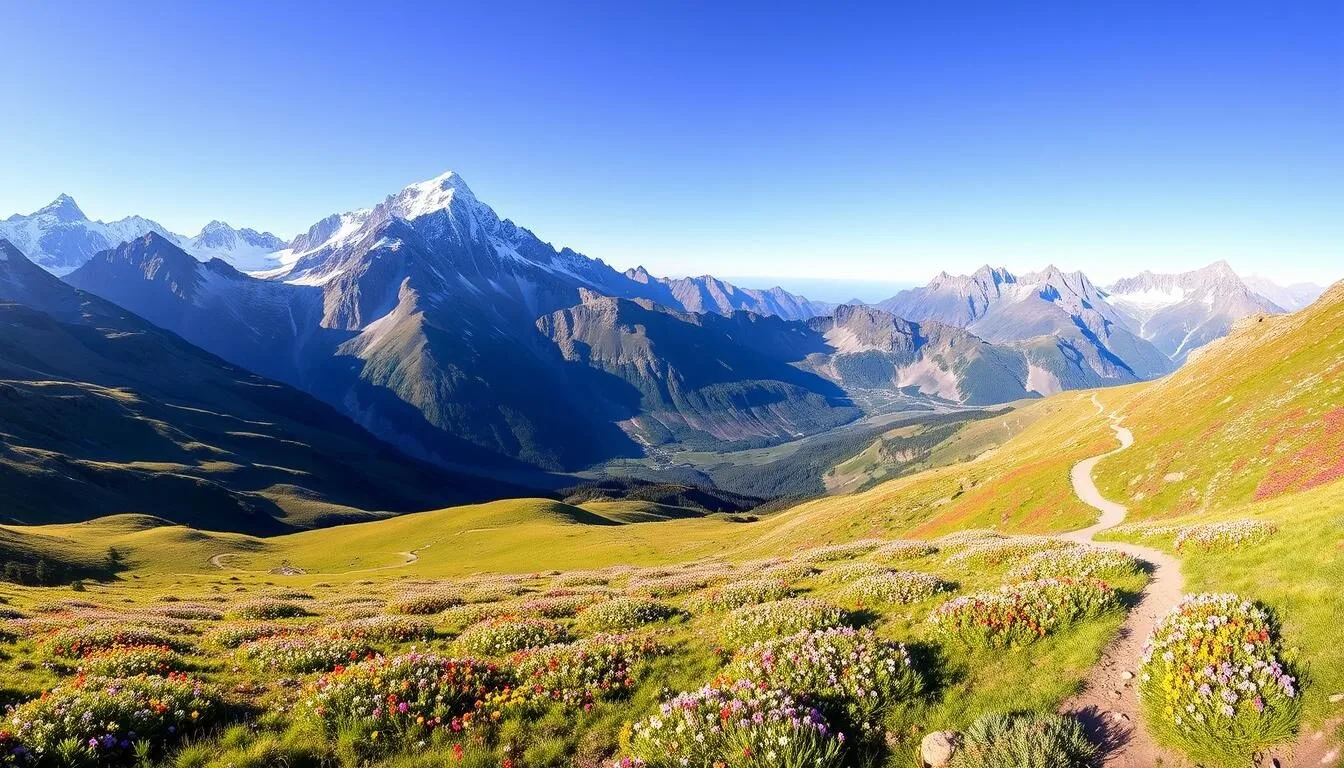
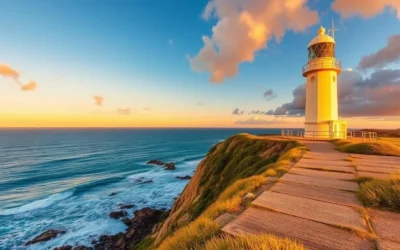
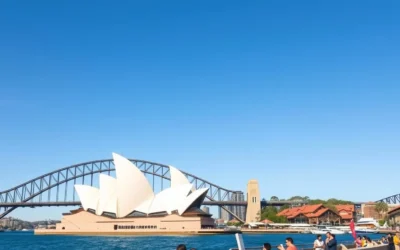
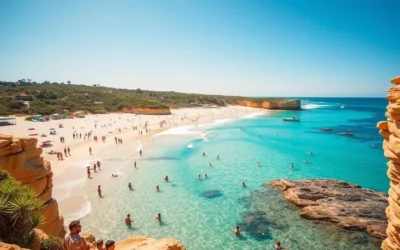
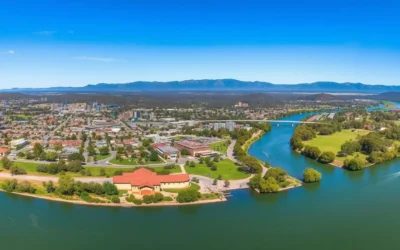
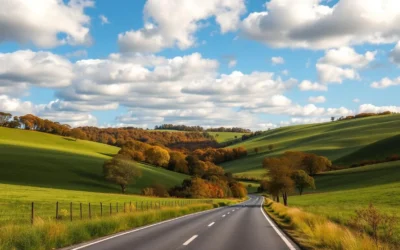
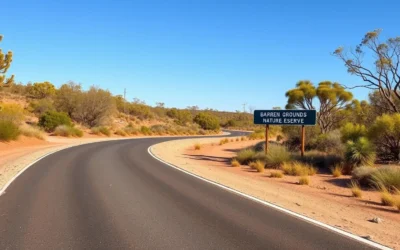
0 Comments